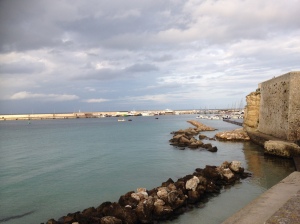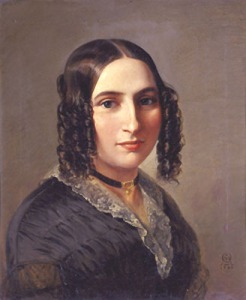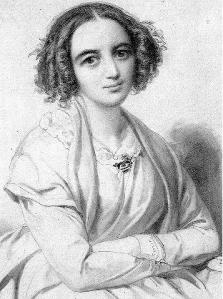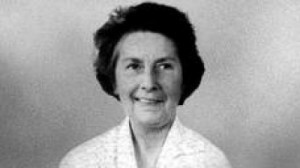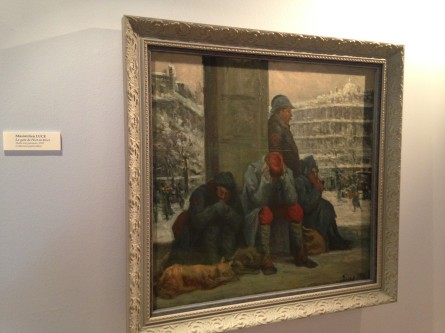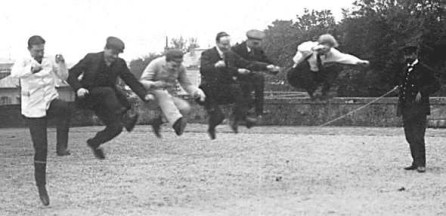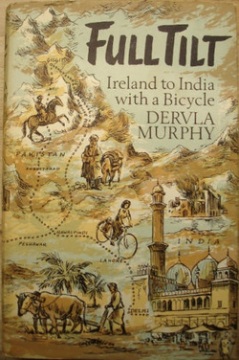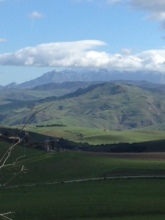 The landscape you see here is that of the hills and mountains to the south of Sarajevo. Last month, I walked with a handful of young people, drawn to this beauty from faraway places like Brazil and Singapore. Benjamin, our guide, drove us to a village called Lukomir (Harbour of Peace), from where we walked, drinking in the clear air, to the edge of a precipitous gorge. Climbing back up to the village, we were fed delicious cheese pies and yogurt, looked at the centuries-old Muslim gravestones, filled our bottles from one of the many natural springs, before bumping back along an unmade road towards Sarajevo, down past the Olympic village of Bjelasnica. It was a very special day out. Despite the occasional passing comment from Benjamin (“that’s where the UN safe haven was, but how could people get to it?” “only one house was shelled in Lukomir – it was just too out of the way to matter”), and despite returning to still war-scarred Sarajevo with posters advertising, if that is the right word, a Srebrenica exhibition, posters that made me look away every time, it was almost impossible to imagine this idyllic, pastoral landscape desecrated by civil war, neighbour killing neighbour, these hills as launching points for mortar attacks. My daughters were born to the soundtrack of the Balkan wars. I would turn off the radio because I couldn’t bear to hear any more, as I held their new lives in my arms. God – or possibly a good therapist – knows why I am drawn to the region, but I am.
The landscape you see here is that of the hills and mountains to the south of Sarajevo. Last month, I walked with a handful of young people, drawn to this beauty from faraway places like Brazil and Singapore. Benjamin, our guide, drove us to a village called Lukomir (Harbour of Peace), from where we walked, drinking in the clear air, to the edge of a precipitous gorge. Climbing back up to the village, we were fed delicious cheese pies and yogurt, looked at the centuries-old Muslim gravestones, filled our bottles from one of the many natural springs, before bumping back along an unmade road towards Sarajevo, down past the Olympic village of Bjelasnica. It was a very special day out. Despite the occasional passing comment from Benjamin (“that’s where the UN safe haven was, but how could people get to it?” “only one house was shelled in Lukomir – it was just too out of the way to matter”), and despite returning to still war-scarred Sarajevo with posters advertising, if that is the right word, a Srebrenica exhibition, posters that made me look away every time, it was almost impossible to imagine this idyllic, pastoral landscape desecrated by civil war, neighbour killing neighbour, these hills as launching points for mortar attacks. My daughters were born to the soundtrack of the Balkan wars. I would turn off the radio because I couldn’t bear to hear any more, as I held their new lives in my arms. God – or possibly a good therapist – knows why I am drawn to the region, but I am.
This was going to be a post about women composers and war (and peace) – and that post will be written, because there is an important story to be told, some fascinating patterns to be revealed – but right now, Bosnia is still with me, perhaps because last night one of the disconcertingly talented Oxford Creative Writing students (Dunja Janjic, twenty years ago a child in exile from Sarajevo, like my guide Benjamin) brought me to tears – and laughter – with a story about her toddler self. You can find out more about the adult Dunja, and indeed her fellow students, at http://www.writeoffarena.com/#!authors/c1875).
Back in the meadows below Lukomir, Pedro, from Rio, and also a child at the time of the conflict that sent Dunja and Benjamin into exile, said what many are now saying – Bosnia is a welcoming, hospitable country precisely because of the horrors. Sarajevo, with its café culture, is now a cool weekend destination: Bosnia a ‘vibrant’ addition to tired European itineraries. Sarajevo is the Jerusalem of Europe, says the Pope who arrived the week before me and prayed for peace, although there is little obviously spiritual about the shiny new banks and shopping malls, there to serve…whom? Certainly not the ordinary Bosnian, living on an average salary of just over 400 euros a month.
Sarajevo is fashionable despite, and because, of its traumatic recent history, war tourism one of its most bankable assets. I’ve always been sceptical about war tourism: it took me years before I went to visit Terezin, where my own grandmother was imprisoned (she would die in Treblinka), and I’m not sure it helped heal any wounds, although it did convince me once and for all not only of the banality of evil, but the ease at which it can be achieved. My scepticism is derived, I think, not merely from the way a certain kind of war story is foundational to the grand, high-political, male-centred narrative of history, but the way in which some forms of war tourism can turn human misery into an exhibit, make us voyeurs, and thus put the past, and the human beings who lived that past, at a safe distance, from me, from us, here and now.
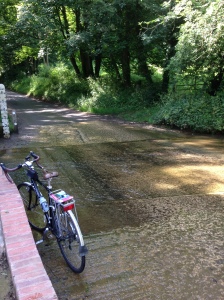 Back home, a few days after my return from the Balkans, I was cycling through the Cotswolds on a quintessentially English summer’s day and, descending a winding, minor road was confronted with that most thrilling of things – a ford. I stopped to take a photograph, and spotted a notice board which informed me that this was ‘Traitor’s Ford’, so called because it was one of the back routes to the battlefields of England’s civil war: Edgehill – 23 October 1642 – was not far away, in space if not in time. I read that the local villages endured ‘groups of soldiers plundering food, goods, horses, cattle and sheep without payment’. If I hadn’t read the rather battered notice, then the only clue in this quiet country lane, as idyllic in its own way as the hills above Sarajevo, would have been the name, Traitor’s Ford. I had stumbled into war tourism in my own back yard – and it was just as hard to imagine the horrors of war here as it had been in the highland meadows of Bosnia.
Back home, a few days after my return from the Balkans, I was cycling through the Cotswolds on a quintessentially English summer’s day and, descending a winding, minor road was confronted with that most thrilling of things – a ford. I stopped to take a photograph, and spotted a notice board which informed me that this was ‘Traitor’s Ford’, so called because it was one of the back routes to the battlefields of England’s civil war: Edgehill – 23 October 1642 – was not far away, in space if not in time. I read that the local villages endured ‘groups of soldiers plundering food, goods, horses, cattle and sheep without payment’. If I hadn’t read the rather battered notice, then the only clue in this quiet country lane, as idyllic in its own way as the hills above Sarajevo, would have been the name, Traitor’s Ford. I had stumbled into war tourism in my own back yard – and it was just as hard to imagine the horrors of war here as it had been in the highland meadows of Bosnia.
Sometimes – and I suppose this is one of the things that keeps me going as a biographer – it is the little things that reveal a life and a time, that provide the connection between the living and the dead, between now and then. A few days ago, I found some documents connected with my father’s arrival in this country. It was 1939 and he, like Dunja and Benjamin, was a refugee from war and ethnic cleansing. Unlike them, he was almost a man – seventeen years old – but, unlike them, he would never, could never, return to the country of his birth, Czechoslovakia. Amongst the fragile papers was a robust booklet, his Certificate of Registration as an Alien. Each month he reported to the police, who duly tracked his movements across the south of England. On 5 June 1941, almost two years after his arrival, my father – who would have just turned nineteen – was granted permission to be employed as a ‘confectioner’ at the Cadena Café, Red Lion Square, Oxford. Eight days later, in a rare type-written entry, he was granted permission ‘to use a Bicycle in the City of Oxford ONLY.’

My father would remain in Oxford for just a few months. By mid-July 1941 he was in East Sussex at a school called Fonthill Lodge, where his fortunes would change dramatically. This little book reeks of wartime, of a life under constant surveillance, of moving relentlessly from one precarious lodging to another, of nights spent fire watching, of exile, of being an ‘alien’ – a life I have never known, and that i can barely imagine – but it also connects me powerfully with my Dad, who cycled through the streets of Oxford, just as I do now.










